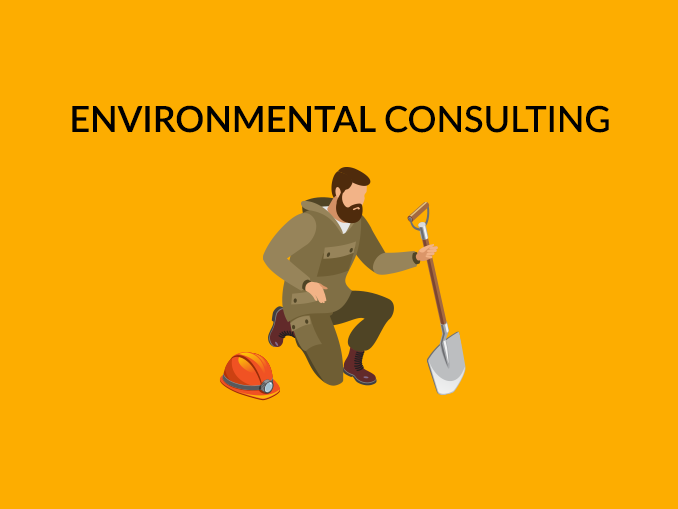
Consulting jobs may suit those who have excellent communication skills and experience in working with people. Aspiring consultants should be prepared for high levels of responsibility. This job is very demanding. Consulting firms are looking for bright and smart candidates. Continue reading to learn more about a career in consulting. Here are some tips to get you started.
Consultant work involves a lot of responsibility
You will be responsible to solve clients' problems as a consultant. As such, your job is to ensure that your team can take over when you're not available. Consultants can help you with this, but they can be expensive, so it is important to establish expectations early on. Consultants might have different priorities to your team than you, so be sure to keep an eye on the scope of your project.

Communication skills are crucial
Communication is one the most undervalued skills in a consulting job interview. While there are a number of soft skills that are essential for a successful consulting job interview, communication is often considered the foundation. Communication is crucial to a company's success. It allows you and your coworkers to build trust, influence each other, and gain the support that you need to complete a project. Here are some tips for communicating better during an interview. Find your weaknesses and learn how to improve them.
Important: Work experience
Consultant firms seek recent graduates who have relevant work experience to fill their summer internships and permanent positions. You can also get work experience in the investment banking industry. Internships can give you an insight into the work that you will be doing and help you decide if consulting is right for you. You can also highlight your achievements, challenges and solutions which have made you a success in the past.
Smart candidates are sought by consulting firms
Bain and McKinsey want smart, hard-working candidates who have an extensive education and have worked in many different fields. In addition to smarts, these firms are also looking for candidates with a track record of innovation and a strong ability to collaborate with others. They are also looking for candidates who can inspire others and are curious.
MBA is not required
Are you considering a career within consulting? An MBA is helpful for many reasons, even though it is not necessary to be in the top tier of consultancies. First, it allows you to meet people with similar interests. Secondly, you will save a ton of money by avoiding the time and expense of getting an MBA. Final note: If you do choose to pursue an MBA, it is possible to go back and finish your degree.

Interning at a consultancy firm is a great way of finding out if consulting is for you.
High-qualified consultants hire people who are well connected. These firms often have extensive alumni networks that they can use to attract new talent. Consultancies will look for people who can work well in a group and establish relationships. Besides academic records, they will also be looking for other skills, including collaboration and creative problem-solving.
FAQ
How much should a consultant charge?
It depends on what service you provide. If you're providing services for free, there is no reason to charge anything. If you sell products or services, however, you must set prices based upon value.
If you offer low-quality services then you don’t have anything for sale. Why should anyone pay for your services?
If you provide high-quality service, you may ask for higher prices because people appreciate the value you offer. Customers who buy multiple services from you may qualify for discounts.
What can I anticipate from my consultant
Once you select your consultant, you should expect to hear back from them within a few days. They will ask you for information about your business, including the mission, goals, products, and budget. After that, they will send you a proposal detailing the scope of work, expected time frame, fees and deliverables.
If everything goes as planned, then both parties will agree to a written contractual agreement. The type of relationship between the parties (e.g., employee-employer, independent contractor-employer) will affect the terms of any contract.
If everything goes as planned, the consultant may begin to work immediately. The consultant will have full access to your files and resources. You'll also have access to their skills and knowledge.
Don't assume that someone who is a consultant knows everything. It takes effort and practice to become an expert in whatever field you consult. Do not expect your consultant to be an expert in every aspect of your business.
Why would a company employ a consultant to help them?
A consultant offers expert advice on improving your business performance. They are not there to sell you products.
Consultants help companies make better business decisions through sound analysis and suggestions for improvement.
Consultants often work closely alongside senior management teams to help understand what they need to succeed.
They offer leadership coaching and training to help employees reach their full potential.
They might advise businesses on how to reduce costs, streamline processes, or increase efficiency.
How do I start an LLC consultancy business?
First, you must decide what your goals are as a service provider. Then you need to make sure you are qualified for those services. It may be a good idea to seek out someone who offers the services you need and observe their work.
Once you have an idea of the content you want, you can then determine where your target audience is. If they aren't available, you may need them to be created.
You must then decide whether you want your business to be run by you or hired others.
You could also consider starting your own consulting company by getting a license from the state, but this requires quite a bit of paperwork and legal fees.
Why hire consultants?
There are many reasons to hire consultants.
-
An organization might have a particular problem or project that requires solving
-
You are looking to learn new skills or improve your existing skills
-
You would like to work with an expert in your field.
-
There is no one else available to handle the task
-
Feel overwhelmed by all the information available and don't know where you should start
-
You can't afford full-time employment
Word of mouth is the best way to find a great consultant. Ask around if anyone knows any reputable consultants. If you are already acquainted with someone who works as an advisor, ask them for recommendations.
Use the "Search People" function to search for consultants in your region if you are interested in using online directories like LinkedIn.
What kind of contracts can consultants sign?
When they are hired, most consultants sign standard employment contracts. These agreements outline how long the consultant will work for the client, what he/she will get paid, and other important details.
Contracts also specify which areas of expertise the consultant will focus on and how the consultant will be compensated. One example is that the agreement may specify that the consultant provides training sessions and workshops, webinars, seminars, or other related services.
Sometimes, the consultant agrees to do certain tasks within a given time frame.
In addition to standard employment agreements, many consultants also sign independent contractor agreements. These agreements allow consultants to work independently while still receiving payment.
What happens after the consultant completes the job?
After the consultant completes his/her work, the final report will be submitted detailing the findings of their work. This report includes project timelines, deliverables, and any other pertinent information.
The report will be reviewed and you can decide if the consultant met all your expectations. If the report does not meet your expectations, you have two options: to request changes or to terminate the contract.
Statistics
- 67% of consultants start their consulting businesses after quitting their jobs, while 33% start while they're still at their jobs. (consultingsuccess.com)
- WHY choose me: Why your ideal client should choose you (ex: 10 years of experience and 6-week program has helped over 20 clients boost their sales by an average of 33% in 6 months). (consultingsuccess.com)
- On average, your program increases the sales team's performance by 33%. (consultingsuccess.com)
- So, if you help your clients increase their sales by 33%, then use a word like “revolution” instead of “increase.” (consultingsuccess.com)
- My 10 years of experience and 6-step program have helped over 20 clients boost their sales by an average of 33% in 6 months. (consultingsuccess.com)
External Links
How To
What does a typical day look like for a consultant?
A typical day will vary depending on the type of work you are undertaking. You'll spend your time researching new ideas and meeting clients.
You'll often have meetings with clients where you can discuss issues and solve problems. These meetings can be held over the telephone, online or face-to face.
You may also be asked to prepare proposals, which are documents outlining your ideas and plans for clients. Before presenting these proposals to clients, you will usually need to discuss them with a colleague or mentor.
After all the planning and preparation, you will have to produce some content. Writing articles, designing websites, editing photos or conducting interviews are just some of the options.
Based on the scope and complexity of the project you may need research to obtain relevant statistics. You might need to determine how many customers you have, and whether they buy more than one product.
Once you have all the information needed, it is time for clients to see your findings. You can either present your findings in writing or orally.
You must also follow up with clients following the initial consultation. For example, you could call your clients periodically to check how things are going. Or send them emails asking them to confirm they have received the proposal.
Although this process can take time, it is important to stay focused and build good relationships with your clients.